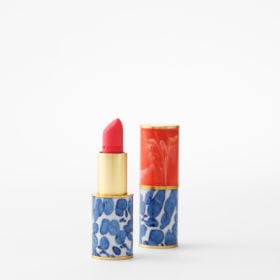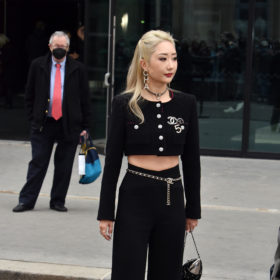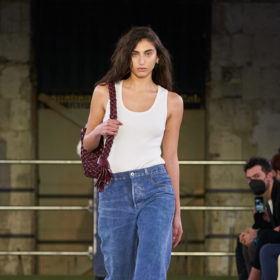
December 30, 2020 at 01:00PM
The year I started wearing the hijab – the head scarf some Muslim women wear — was also the year I got braces and glasses. It was the mid-2000s, I was about to enter high school and it was the heyday of melodramatic teenage insecurities, fuelled by cinema classics such as Mean Girls and High School Musical. Unbeknownst to me at 13, I had teetered dramatically away from conventional beauty standards in a time when they were far more narrowly defined than they are today.
Soon, however, the hijab would seamlessly fit into my fashion and beauty regimen. In a quest to stand out in the suburbs of Western Canada, in a city where many people were South Asian like me, I found hijabs to match my clothes: in neon hues, bedazzled with sequins and in prints from cheetah to floral. My makeup matched these colours, and I swapped a hair routine for a hijab routine. (Yes, there were bad hijab days.)
About a decade later, at age 22 and in my last semester of university, I decided to stop wearing
the physical marker of faith. As if I were a teenager again, I found myself learning things anew, from how to style my hair to how tied my perception of beauty was to the male gaze.
As a hijabi, I fantasized about all of the different hairstyles I wanted to try: wearing French braids, donning extensions and even dyeing my whole head purple. Ironically, the most avant-garde hair decision I’ve made to date is to let a friend bleach the ends of it in their bathtub one summer. Most days I simply wash my hair, haphazardly rub in some curl cream and hold out till I’m confronted with a frizzy pouf.
Despite these fantasies, I found it easy to embrace modest beauty and fashion trends, part of a growing but still novel industry in the mid- to late 2000s. I even started my own fashion blog in high school to document my outfits, which helped me connect with hijabi bloggers from Indonesia to Italy. One day while I was strolling the beach in Vancouver with some other friends who were also wearing hijabs, a woman came up to us. “You all look beautiful in that!” she exclaimed, pointing to our heads. “Just stunning!”
ADVERTISEMENT
ADVERTISEMENTKate Spade Autumn/Winter Sale |
While I was basking in the glow of her compliment, one of my friends turned to our group and said worriedly: “See, this is why we shouldn’t even get our eyebrows done! The point of the hijab isn’t to attract attention to our beauty.” I nodded along with the others, confused. I knew that the hijab was worn as an expression of modesty, but what’s the harm in looking good? And what did plucking our eyebrows have to do with anything?
It was then that I began to understand why some people had left comments on my blog that were variations of “Hijab is not a fashion statement!” These were among the first few questions I would have about the hijab and then later about women in Islam and eventually Islam itself – or at least the mainstream Sunni interpretation of it.
As my belief in the religion waned, the hijab began to lose meaning for me. My daily ritual of wrapping fabric around my head began to feel cumbersome – even irritating. I knew I couldn’t continue wearing it. I also knew that there would be repercussions and that I’d never look back.
The first day I stepped out of the house without a hijab, almost six years ago, the winter wind nipped my ears and blew my bangs in my face. I felt like everyone was staring, but of course they weren’t. I had matched my eyeshadow to my blue dress and wore dangly ear rings that, for the first time, weren’t peeking out from behind a scarf.
“Unveiling” – from colonial Algeria to present-day Iran – has long been seen as a liberating act to many in the West. Now that I’ve stepped from one world to the next, I’ve taken on new burdens. Becoming agnostic opened up a new world of dating and sex, and I soon became fixated on presenting myself so men would find me attractive.
As I try now, in my late 20s, to feel beautiful without validation from men, while at the same time shedding binary ideas from my Muslim upbringing about modesty and hypersexualization, my style and beauty looks are a combination of my entire past. Sometimes I wear short dresses with plunging necklines; other times I opt for shirts with a looser fit. Sometimes I do a full face of makeup; other times I’ll go bare. One thing hasn’t changed, however: how many different colours you’ll see me sporting at once.
The post One Writer Reflects on Her Decision To Stop Wearing The Hijab appeared first on FASHION Magazine.
Read More Fashion News
Author Urooba Jamal | Fashion Magazine
Selected by CWC
ADVERTISEMENT
ADVERTISEMENTUp to 30% off Gift Sets |






